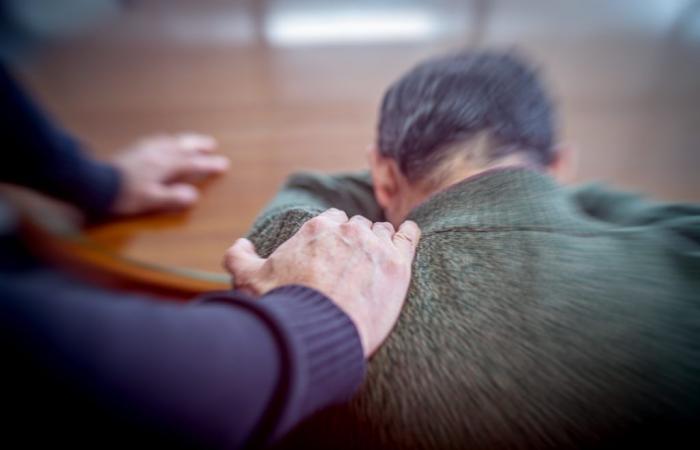Every June 26th the International Day to Combat Drug Abuse and Illicit Trafficking and the motto established by the UN for this year is “The evidence is clear: we must invest in prevention”.
In line with the premise postulated by the UN, the Ministry of Health of Entre Ríos (through the departments of Prevention and Control of Addictions and Mental Health) maintains that the focus should be placed on generate prevention actionsboth directly and through training, aiming to create networks and increase the human resource trained to intervene in different areas.
They are fundamental actions, especially for the moment we are going through, where a significant increase in drug consumption is observed in the country. For example, it can be noted that Between 2017 and 2022, marijuana consumption almost doubled (it went from 16 percent to 27 percent of those who have used at some time in their life; and from 7.8 percent to 13.8 percent of those who used in the last year). The trend emerges from the comparison of the data provided by the National Study of the Population aged 12 to 65 on the Consumption of Psychoactive Substances (2017) and the National Survey on Consumption and Care Practices (ENCoPraC) of 2022.
At the same time, the Secretariat of Comprehensive Drug Policies of the Argentine Nation (Sedronar) outlined the spaces where prevention actions can be applied, in which the work and educational spheres stand out. Sharing this line, the Directorate of Addiction Prevention and Control has developed different programs aimed at prevention in these areas.
The director of Addiction Prevention and Control, Pablo Cymbalista, indicated: “Reality calls us to deal with this problem, seeking the greatest efficiency in the use of resources and the maximum of creativity and collaboration to be able to cover the multidimensionality that it implies, which is why preventive work is fundamental and is the key tool to reach the largest population with the greatest possible impact”. And he added: “Therefore, it is clear at different levels, international, national and provincial, that prevention must be the focus of work on which to place the main attention; as well as working jointly and in an articulated manner with the Mental Health care network in order to be able to face the demands for care that arise when putting the issue on the table and addressing it in a comprehensive manner.”
In this sense, it is worth mentioning that under the orbit of the Mental Health Directorate the Program for Addressing Consumer Problemswhich puts the focus on its prevention and approach working with the different actors who address the issuea, including health providers, social organizations and specialized centers.
Likewise, since 2020 the Program coordinates the Provincial Network of Consumer Problems, a specific territorial work strategy in which sectors of the provincial State, different municipalities and civil society organizations participate. In addition, it has the permanent support and coordination of Sedronar. Your goal is Strengthen the work of prevention and attention to consumer problems through intersectoral coordination, by sharing experiences, knowledge, debates and establishing joint strategies between health, education, municipal, territorial and community devices..
Strategies promoted by the Department of Prevention and Control of Addictions
Cymbalista provided details of the prioritized lines: The program “Taking control” is intended for secondary level students, and aspires not only to provide information about substances but also to work reflecting on their consumption logic, care habits and life skills. Furthermore, the program “Shape” has as its end train and provide tools to teachers at the initial, primary and secondary levelsso that from their classroom spaces they can implement activities that contribute to prevention and health promotion, as well as promote the connection between schools and their environment to address the problem in a comprehensive manner.
Both programs are in their review stage by the General Council of Education, with whom they will work together in their planning and execution.
As a complement to these initiatives, there have also been Prevention programs in the Workplace and Training for Technical Teams of Municipalities. They aim expand the preventive network and train new actors who can generate actions aimed at their local realitywith the logic of using the resources available in the place to achieve greater efficiency.
Finally, Cymbalista highlighted that “collaborations are also being developed with other areas of the Ministry of Health, such as the Coordination of Prevention of Chronic Non-Communicable Diseases with whom we participate in the healthy environments strategy; and other public organizations such as the Ministry of Labor, with whom it is planned to promote prevention in the workplace.”
Allusive activities
– The Huella Center held an inter-institutional conference this Wednesday. The establishment, which depends on the Mental Health Directorate, is located in Paraná and offers free, outpatient care for drug use problems.
– On the same Wednesday, from 4 to 6 p.m., a day on the prevention of problematic consumption will be held organized by the Municipality of Paraná, to which the Program for Addressing Consumption Problems adheres and accompanies. The meeting point will be Plaza Sáenz Peña, where there will be open radio, Health information stands, Community Care and Accompaniment Houses and Community Territorial Devices, as well as play, cultural and sports spaces.
– On Friday the 28th at 9:30, within the framework of the meeting of the Provincial Network for Addressing Consumption Problems, the meeting “Problematic Consumption and Emergencies” will be held (via Zoom). It will feature presentations by representatives of the Mental Health Emergency Line, Mental Health School Hospital and San Martín Hospital.
– In addition, in the previous days, the director of Addiction Prevention and Control, Pablo Cymbalista, participated in two activities promoted by the Salto Grande Development Corporation (Codesal) in Concordia; while the director of Mental Health, Gabriel Fernández Martínez, and representatives of the Program for Addressing Consumption Problems, spoke in the discussion “Current public policies on consumption problems”, promoted by the Directorate of Extension and Social Commitment of the UCA -Paraná Headquarters.






